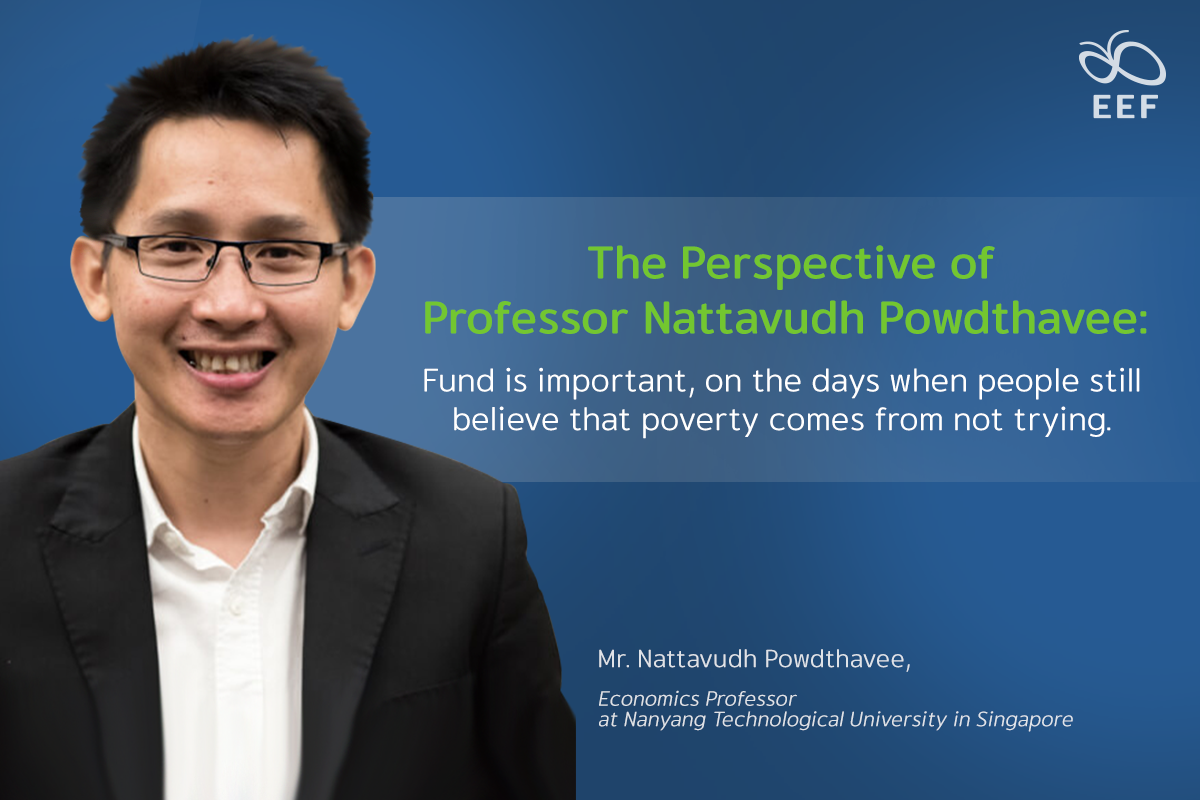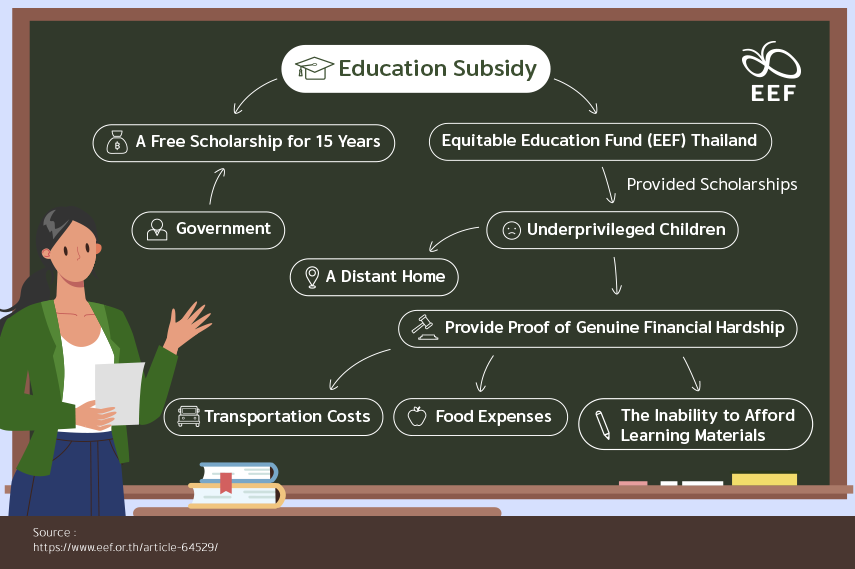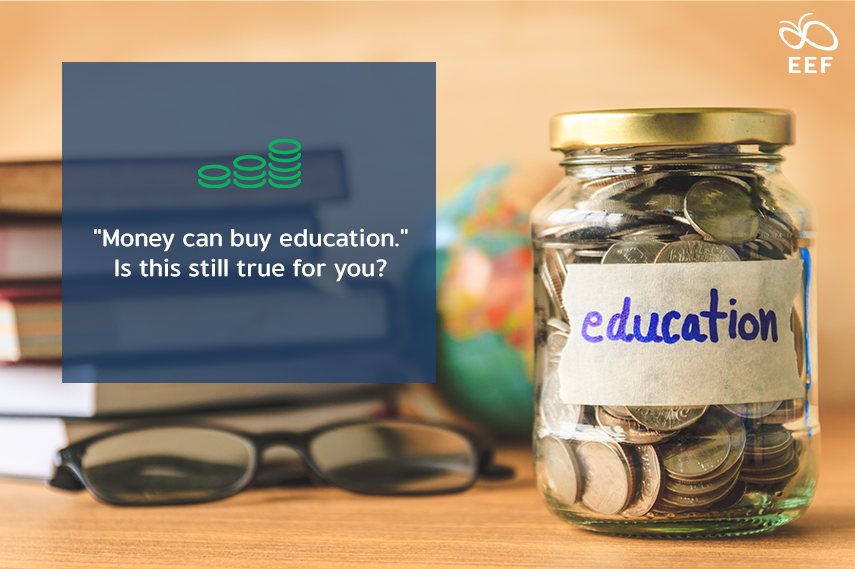
On the days when we cannot say that education is the same everywhere, funds and opportunities are still significant.
In a society where not everyone has equal access to opportunities, Nattavudh Powdthavee, an economics professor at Nanyang Technological University in Singapore, may have a clear assumption in economics because he believes that “luck” determines the initial cost of life.
Equal education, what does it look like, especially in the context of Thailand?
“Actually, it’s not just Thailand; this problem exists worldwide because, in my definition, education is a right, a foundation, and in economic terms, it should be a public good or a non-excludable commodity that everyone can access without exception. However, the problem is that education is not truly like that. Let’s take the example of state schools, which have limited classrooms. If you are born in a province where, on average, there are fewer quality schools, the opportunities are not equal to those in other big cities or Bangkok. Therefore, in the definition of education, although it is a public good, it is not true in that sense because there are several inequalities. This is not just a problem in Thailand but a global issue.

Thailand’s problem is problem of a developing country where there is high inequality. Schools in Bangkok and provinces do not have equal resources, teachers, quality of education, etc. Achieving equal education is extremely challenging. For example, many parents in Bangkok research and gather information before sending their children to school. The appearance of educational equality is not part of this equation.
However, now we are talking about the supply side, which refers to the unequal provision by the government, but we also have a demand side, which is the parent’s desire. Even if there is true equality, we want our children to have a better education, so we send them to private tutoring, creating further inequality on both the demand and supply sides. It becomes a global problem of whether we can achieve equal education. Is the world fair or not? But we have to try our best to bring it as close as possible to that point.”
“What may help to bring it closer is funding. When it comes to discussing educational funding, what is the first thing that comes to your mind?
“Speaking from the perspective of someone who has never received a scholarship, for me, educational funding is support for those who want to study, and have the ability to learn, but face financial challenges that prevent them from pursuing education or learning due to various financial constraints. This is the true meaning of scholarships. It means they want to go further, improve themselves, enhance their capabilities, and have inspiration and ambition, but there are barriers, and funding is the means to break down those barriers. That’s my understanding of educational funding.

And now, the ‘Education Subsidy’ is currently a free scholarship for 15 years provided by the government. There may also be scholarships provided by EEF (Equitable Education Fund) for underprivileged children, but those scholarships come with certain challenges and conditions. For example, if a child is to receive a scholarship, they must come from a distant home and provide proof of genuine financial hardship, including transportation costs, food expenses, and the inability to afford learning materials. In your opinion, what are the important factors that should be considered as conditions for educational funding?
I think it’s quite profound as it depends on the level of education we are talking about. For many young children, scholarships in primary and kindergarten levels, which come with the condition of achieving academic excellence, can be extremely challenging because that’s their early childhood stage. At this stage, scholarships should be given opportunities to those who are underprivileged and unable to attend school. It should be a scholarship to eliminate those barriers and enable them to come to school.
I think this condition set by the EEF is considered a global standard, as it is based on the theory. Therefore, we need to find some criteria for measurement, although it’s difficult. Measuring it based on the distance from home to school and the family income, I think it’s okay.”

Lastly, “Money can buy education.” Is this still true for you?
“It is true because we live in a society with high inequality, where private entities know that they can profit from this. For example, there are many international schools that charge exorbitant tuition fees because they know there is demand. The opportunities in life after attending these schools are vastly different from those attending less prestigious schools.
Ideally, we want equal access to education and equal quality. I once asked someone who has children if Thai schools had everything that international schools had but without foreigners, would they still send their children to study abroad? They said they would still send them. That reflects the values in Thai society. There are many factors that make us feel that we want to pay for education. I understand that. However, I believe that if true equality exists, like in Scandinavia, many people would prefer society to be that way.”

